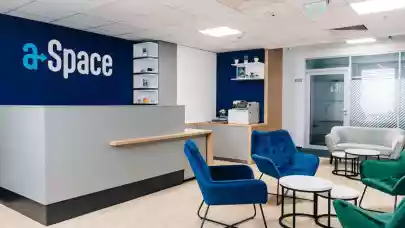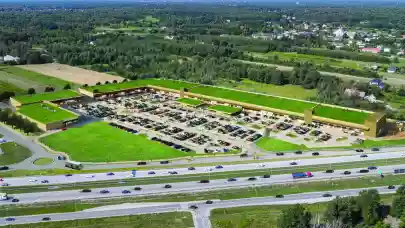
Flexible office stock in Poland has increased six-fold since 2015. This diversified market perfectly meets the expectations of numerous sectors, small businesses, and corporations. As the expansion of flex operators slows, fewer and fewer offices remain available to tenants both in Warsaw and on major regional markets.
The experience of the past two years and the hybrid working model has led to a growing appetite for flexible space, with companies increasingly willing to accept the premium paid for the convenience and amenities that the flex format provides. According to a JLL global survey of tenants in 2021, a staggering 41% expect to increase the use of flexible space as part of their post-pandemic office strategy development.
"Although only two operators are responsible for one third of the flex market in Poland: IWG – owner of the Regus and Spaces brands – and WeWork, we can definitely speak of a great diversity in this segment. The offer of flexible offices differs in terms of the proposed forms of cooperation, functionality and design. They therefore can effectively respond to the expectations of companies of different sizes from a range of industries", says Adam Lis, Flexible Office Solutions Manager, JLL.
Six-fold market growth in six years
As in other European countries, the Polish market has seen a rapid development of the flexible office solutions sector in recent years.
"Over the past six years, the supply of flexible office space in Poland has increased as much as six times. At the end of Q3 2021, the volume of operating flexible spaces was over 280,000 sqm in major business hubs[2], of which almost 180,000 sqm was located in Warsaw. However, this only represents 2.9% of the capital's total office stock[1] Warsaw, Kraków, Wrocław, the Tri-City, Katowice, Poznań and Łódź", explains Hanna Dąbrowska, Research Analyst, JLL.
JLL's analysis shows a shortage of flexible locations in the northern and eastern parts of Warsaw.
"The average occupancy level of major operators locations in the central districts of Warsaw exceeds 80%. At the same time, the pandemic has dampened their enthusiasm for further expansion. As a result, in the coming months, we can expect a shortage of flex spaces in the most attractive locations", adds Adam Lis.
Flexible spaces – new models, needs and solutions
As a result of the pandemic, the number of new players making their debut in the market has decreased, and operators have noticeably slowed down their pace of expansion and have been testing new business concepts. For example, they became more reluctant towards leaseholds and started to prefer asset-light models (e.g., management and franchise agreements). Landlords, on the other hand, are often inclined to set-up their own flexible concepts.
Tenant policy is also changing. Corporations increasingly expect an expansion or reduction as well as early exit options in their leases and very much prefer short-term commitments. As a result, demand for flex space is high and there is a growing shortfall of such space not only in Warsaw, but also in Kraków, Wrocław and Tri-City.
"Flexible office operators have been quick to respond to companies' needs that stem from the proliferation of the hybrid working model, which offers, for example, on-demand access in their centres. Tenants can also obtain access cards for more employees than the number of rented workstations which allows for a certain degree of hot-desking within their flexible portfolio", adds Adam Lis.
Another workplace model that is flourishing against the backdrop of the pandemic, particularly in Western Europe, is Hub & Club. It allows employees to use flexible centres located nearby, so they don't have to commute to HQ or work from home every day. Although, this particular model may very well not see widespread adoption due to the current size of the Polish flex market and the limited number of locations outside large city centres, there are still opportunities in the country.
"For example, there would be potential to offer this type of space in Gdynia, to enable employees who commute daily on the Gdańsk-Sopot-Gdynia line to minimise commuting times", explains Hanna Dąbrowska.



